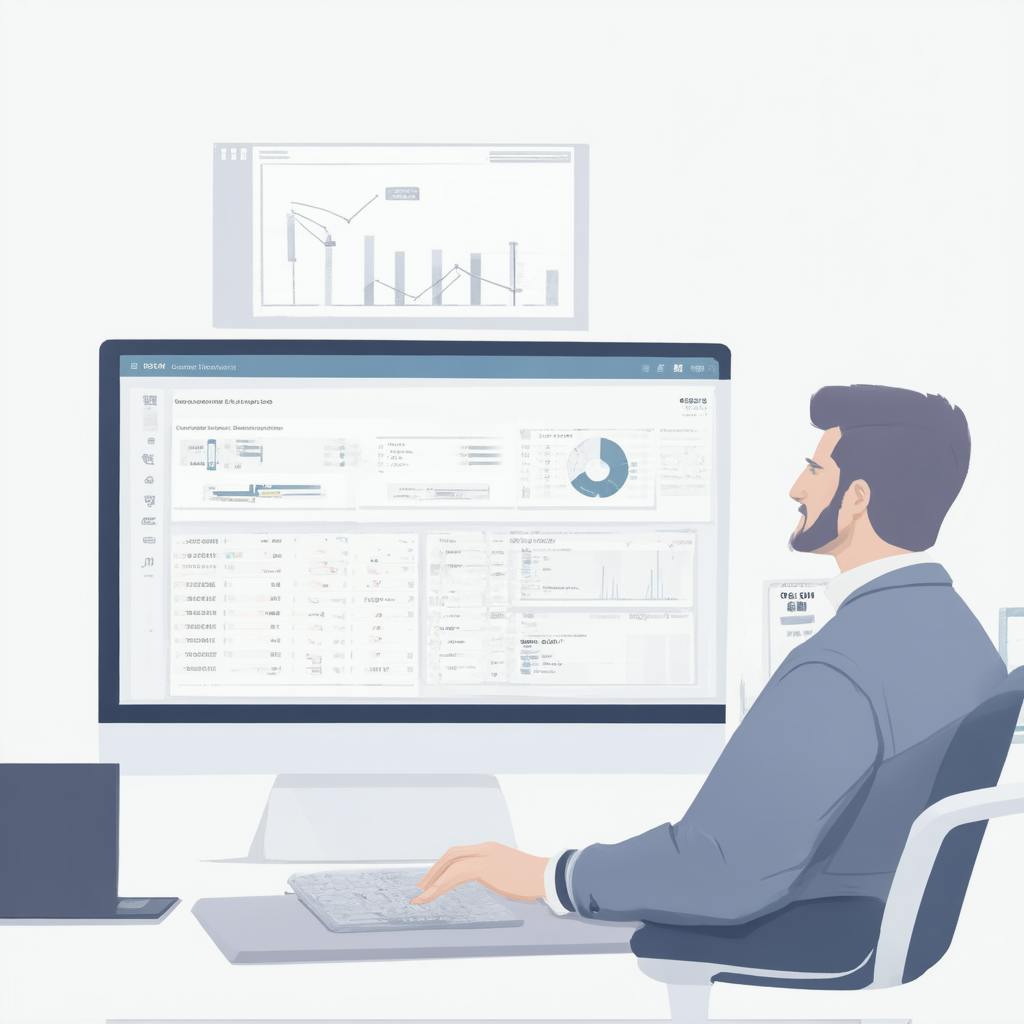Understanding and managing customer interactions is crucial for the success of marketing campaigns. A robust Customer Relationship Management (CRM) system is no longer optional—it is essential, especially for campaign managers who need to streamline their processes and boost their effectiveness. Whether you're leveraging campaign CRM tools or diving deep into marketing automation, integrating a CRM system for marketing efforts can fundamentally transform how campaigns are executed. This article elucidates why CRM is indispensable for campaign managers and highlights how CRM campaign tracking can drive extraordinary results.
Understanding of CRM for Campaign Management
Customer Relationship Management, or CRM, refers to the strategies, technologies, and tools that businesses use to manage and analyze customer interactions and data throughout the customer lifecycle. The goal is to enhance customer service relationships, improve customer retention, and drive sales growth. For campaign managers, a CRM serves as a central hub that not only organizes customer data but also aids in the effective planning and execution of marketing campaigns.
Integration of Key Concepts
1. Campaign CRM Tools:
These tools are designed to streamline the marketing process by integrating with other software solutions, automating repetitive tasks, and providing significant insights through data analytics. From email marketing to social media campaigns, CRM tools ensure that every customer touchpoint is deliberate and personalized.
2. Marketing Automation:
At the heart of many CRM systems is the capability to automate marketing efforts. Automation allows campaign managers to execute, manage, and measure campaign workflows without manual intervention, freeing up valuable time and resources. This enables campaign managers to focus on strategy and creativity rather than being bogged down by technical execution.
3. CRM Campaign Tracking:
One of the standout features of a CRM system is its robust campaign tracking capabilities. CRM campaign tracking allows managers to monitor the performance of campaigns in real-time, providing insights into customer engagement and campaign ROI. This real-time data helps in making informed adjustments to optimize performance.
4. CRM System for Marketing:
A CRM system for marketing acts as a comprehensive tool that aligns sales, marketing, and customer service efforts. By providing a single source of truth, it ensures consistency in messaging and enhances the overall customer experience. The integration of CRM into marketing strategies results in more targeted campaigns, improved lead management, and a better understanding of customer behavior.

AI made with Dean Jones
Reasons to Invest in CRM
The compelling advantage of using a CRM system lies in its ability to personalize and optimize marketing efforts. Campaign managers can tailor messaging to specific customer segments, improving engagement and conversion rates. Moreover, CRM's analytical power provides valuable insights that can uncover new opportunities and define more effective strategies. By providing a detailed view of customer interactions, a CRM empowers campaign managers to deliver exceptional, data-driven marketing campaigns.
Evidence of CRM's Impact
Studies show that organizations utilizing CRM systems report significant improvements in marketing outcomes. According to a report by Nucleus Research, every dollar spent on CRM implementation yields a return of $8.71 in revenue—testimony to the technology's capacity to enhance sales and marketing efficiency. Additionally, businesses that use CRM platforms witnessed a 41% increase in revenue per salesperson, demonstrating CRM's strong impact on operational performance.
Frequently Asked Questions
How does a CRM improve campaign management?
CRM improves campaign management by centralizing customer data, automating marketing processes, and providing real-time insights for making informed decisions.
What are some popular CRM tools for campaign managers?
Popular CRM tools include Salesforce, HubSpot, and Zoho CRM. These platforms offer comprehensive solutions for managing customer interactions and optimizing marketing campaigns.
Can smaller businesses benefit from a CRM system?
Absolutely. CRM systems are scalable and beneficial for businesses of all sizes, offering features that can enhance marketing efforts and customer engagement irrespective of the organization’s scale.
FAQ: Campaign Manager CRM
What is the role of CRM in campaign management?
Customer Relationship Management (CRM) systems play a crucial role in campaign management by centralizing and organizing customer data. This allows campaign managers to understand the needs and preferences of their audience better and tailor campaigns accordingly.
CRM systems help in segmenting target audiences, personalizing communication, tracking interactions, and monitoring campaign performance. By providing a comprehensive view of the customer journey, CRM systems enable campaign managers to identify patterns, predict customer behavior, and make data-driven decisions that enhance the effectiveness of marketing efforts.
Why is a CRM system essential for campaign managers?
A CRM system is essential for campaign managers for several reasons:
- Data Integration and Access: CRMs consolidate customer information from various sources, ensuring all team members have access to up-to-date and consistent data, minimizing the risk of errors and ensuring cohesive campaign strategies.
- Enhanced Customer Segmentation: CRMs enable campaign managers to create precise customer segments based on behavior, demographics, and preferences, which is crucial for targeted and effective marketing.
- Automated Communication: Many CRM systems offer tools to automate email campaigns and other forms of communication, allowing campaign managers to send timely and relevant messages without manual intervention.
- Performance Tracking and Analysis: With built-in analytics, CRM systems help campaign managers track the performance of various campaigns in real-time, measure ROI, and adjust strategies as necessary to optimize results.
- Collaboration and Efficiency: A CRM provides a central platform for team collaboration, ensuring that every team member is aligned with the campaign goals and strategies, thus increasing overall efficiency.
How can a campaign manager effectively use CRM for better results?
To leverage a CRM effectively, campaign managers should consider the following strategies:
- Regularly Update and Clean Data: Ensure that all customer data is accurate and up-to-date, which forms the foundation of effective CRM use and improves data quality and reliability.
- Leverage Segmentation and Personalization: Use the CRM's segmentation features to create tailored messages that resonate with specific customer groups, enhancing engagement and conversion rates.
- Automate Workflows: Take advantage of automation capabilities to streamline repetitive tasks such as follow-up emails and reporting, freeing up time for strategic activities.
- Monitor and Analyze Performance: Regularly review campaign metrics provided by the CRM to understand what's working and what isn’t, allowing for timely adjustments and data-driven decision-making.
- Integrate with Other Tools: Use the CRM's integration capabilities to connect with other marketing tools, ensuring seamless operations and comprehensive data insights.

AI made with Dean Jones
What specific features should campaign managers look for in a CRM system?
When selecting a CRM system, campaign managers should consider several key features:
- User-Friendly Interface: An intuitive and easy-to-navigate interface that minimizes the learning curve and increases adoption rates among team members.
- Advanced Segmentation and Targeting: Robust segmentation features that allow for detailed audience targeting based on a wide range of criteria including behavior, demographics, and purchase history.
- Automation and Workflow Management: Tools to automate mundane tasks such as email campaigns, task assignments, and follow-up reminders.
- Analytics and Reporting: Comprehensive reporting and analytics features that provide insights into campaign performance and customer behavior.
- Integration Capabilities: Easy integration with other marketing and business tools to ensure a seamless flow of data and comprehensive insights.
- Mobile Access: A mobile-responsive CRM that allows campaign managers to access customer data and manage campaigns on-the-go.
By carefully selecting a CRM that incorporates these features and leveraging it effectively, campaign managers can significantly enhance their campaign management capabilities, leading to improved customer engagement and higher ROI.
Conclusion
A campaign manager CRM is an indispensable asset for any campaign manager seeking to enhance marketing efforts and drive business success. By leveraging customer relationship management tools, employing marketing automation, and utilizing CRM campaign tracking, campaign managers can significantly improve performance and achieve measurable results. As businesses continue to evolve and adapt to the digital landscape, the integration of a CRM system for marketing proves not only beneficial but essential for long-term success.

